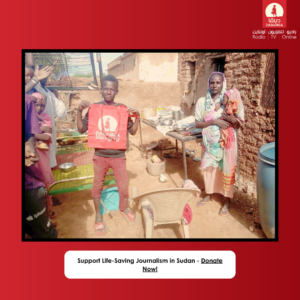Sudan journalists recount detention ordeal
A number of journalists who were arrested before and during the protest marches in Khartoum on Thursday recounted what happened to them during the arrest, and what they saw in the detention camps.
 Writer and journalist Faisal Mohamed Saleh, winner of the 2013 Peter Mackler Award for Courageous and Ethical Journalism (File photo)
Writer and journalist Faisal Mohamed Saleh, winner of the 2013 Peter Mackler Award for Courageous and Ethical Journalism (File photo)
A number of journalists who were arrested before and during the protest marches in Khartoum on Thursday recounted what happened to them during the arrest, and what they saw in the detention camps.
Writer and journalist Faisal Mohamed Saleh, winner of the 2013 Peter Mackler Award for Courageous and Ethical Journalism, said “Thanks to this great people .. If we did not have enough reason for this revolt, what we have seen and witnessed yesterday is sufficient to lead us to the conclusion that this people does not deserve to be ruled by these knaves.
“Twelve hours we spent incommunicado in the detention centre in Abu Jinzir Square [in central Khartoum] and in the cells of the Northern Section [in Khartoum Bahri]. In Abu Jinzir I saw the worst that the human soul can have of hatred, evil and the pleasure of torturing, insulting and abusing people. They make no difference between young and old.”
However he “saw the bright face of Sudan in the cells of the Northern Section, young men and women who did not stop their chanting and singing to the nation and the people for a moment. We were more than 400 detainees whose voices were chanting and cheering non-stop.”
A woman journalist of El Tayyar newspaper reported that: “The authorities have started a random campaign of arrests that does not differentiate between a demonstrator, a spectator, a pharmacist, a drug carrier or passer-by. We were arrested near Comboni in downtown Khartoum. Security forces seized us and took us to Abu Jinzir as if we were at war in the bush.
“In Abu Jinzir, we witnessed unprecedented violence, humiliation, insults, beatings, and torture of youths. In the cells of the Northern Section, we were more than one hundred, men and women, lawyers, doctors, university professors, employees and others cheering from within the cells up to the sky,” she said.











 and then
and then